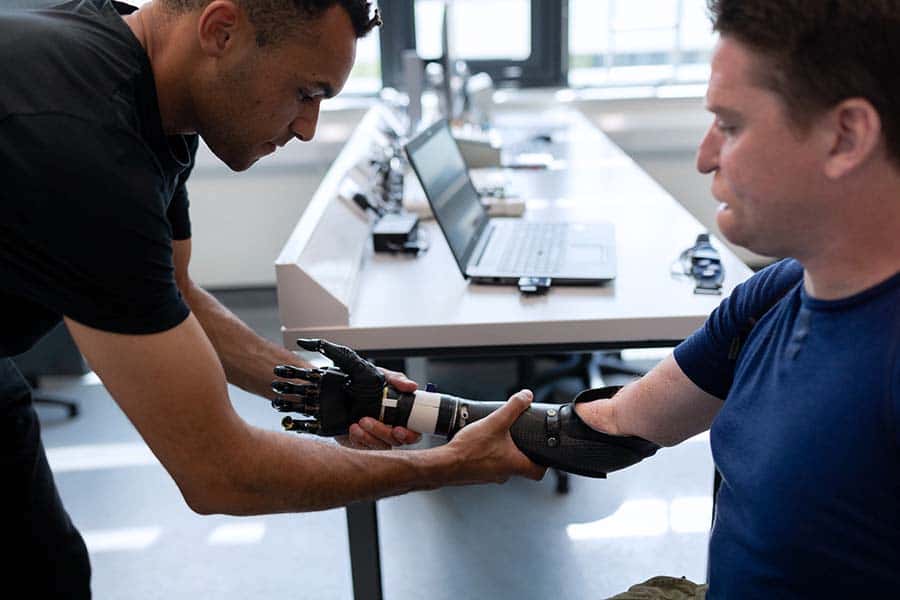More clinical and technical engineers needed in healthcare stresses respected institution

The Institution of Mechanical Engineers (IMechE) has stressed that more engineers are needed in healthcare as the NHS faces a huge influx of new technology and rising patient numbers in the coming years.
A new report, ‘Healthcare Solutions: Elevating the Engineering Workforce’, highlights that engineers with both clinical and technical skills are needed to ensure that where medical technology and services are being used, they are right for the situation – whether the patient is being treated at home or in hospital.
It follows an alert by the World Health Organisation that countries must “recognise engineers working in healthcare settings as an essential professional role for the future of clinical and social care.”
Despite this, IMechE’s report highlights that a significant disparity exists in the UK between healthcare engineers and clinicians.
According to the study, out of the current 1.5 million-strong NHS workforce, only 3,000 to 3,500 are clinical engineers.
Dr Helen Meese, lead author of the report and Vice-Chair of the Institution’s Biomedical Engineering Division, commented: “If we are to learn from global crises such as the COVID pandemic, it is that 21st-century medicine can only be delivered with significant amounts of technology and, that care at home is just as critical as care in hospitals.”
In the report, the Institution calls for healthcare engineers to have increased authority and decision-making powers to encourage recruitment and ensure new technology is designed and adopted in the safest, most effective way.
“Unlike clinicians, there is little uniform recognition of engineers’ contribution, particularly in the hospital environment,” added Dr Meese.
“These engineers often operate at varying levels of authority and have limited input into critical decision-making.”
In particular, the Institution recommends that two new healthcare engineering roles be created to ensure technology is selected and used to the benefit of all patients: Chief Healthcare Engineer and Patient-Enablement Engineers and Technicians.
IMechE stresses that every hospital should have a Chief Healthcare Engineer who has strategic oversight. Interestingly, suggesting the position should be of professional parity with roles such as the Head of Surgery, Chief Nurse and Chief Pharmacist.
These engineers would have consistent qualifications, level of authority, decision-making abilities and connectivity with other hospitals, describes the Institution, emphasising this would help promote best practice in the procurement, maintenance and use of medical equipment, alongside the opportunity for cost savings.
As well as a chief strategic clinical engineering role within hospitals, IMechE contends that Patient-Enablement Engineer and Technician positions should be introduced to aid in the effort of moving long-term care and treatment away from clinical settings.
Stating that the social care system is already overwhelmed, the Institution of Mechanical Engineers asserts that steps should be taken to build on the well-proven techniques of rehabilitation and assistive technology engineering to create the patient care pathway at home.
To this end, Patient-Enablement Engineers and Technicians would work exclusively in the space between acute care and social care with their clinical colleagues, details IMechE. Notably, these roles would not only require the full remit of engineering qualifications and skills but in-depth clinical and social care knowledge as well as management and customer service experience.
In a parallel report, ‘Healthcare Solutions: Improving Technology Adoption’, IMechE also calls for the government and healthcare providers to develop national ‘complete life-cycle’ strategies for technology adoption within the NHS.
In particular, the Institution recommends using strategic planning of technology for remote patient monitoring and in GP practices
https://thiis.co.uk/respected-institution-stresses-the-need-for-more-clinical-and-technical-engineers-in-healthcare/https://thiis.co.uk/wp-content/uploads/2020/09/Engineer-prosthetic-limb.jpghttps://thiis.co.uk/wp-content/uploads/2020/09/Engineer-prosthetic-limb-150x150.jpgGovernment & Local AuthoritiesNewsroomNHSReports & ResearchSector NewsChief Healthcare Engineer,clinicians,Engineering,Engineers,healthcare sector,IMechE,National Health Service,NHS,Patient-Enablement Engineers and Technicians,The Institution of Mechanical EngineersThe Institution of Mechanical Engineers (IMechE) has stressed that more engineers are needed in healthcare as the NHS faces a huge influx of new technology and rising patient numbers in the coming years. A new report, ‘Healthcare Solutions: Elevating the Engineering Workforce’, highlights that engineers with both clinical and technical...Calvin BarnettCalvin Barnettcalvin.barnett@bhta.comAuthorTHIIS Magazine

